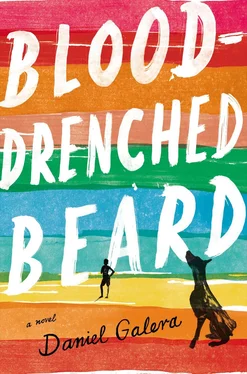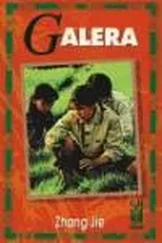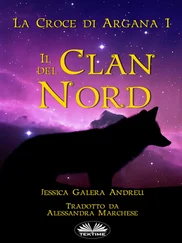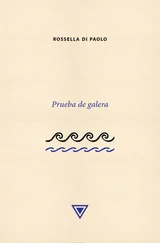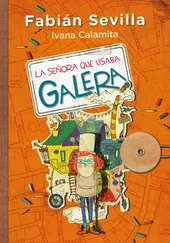What made you remember that now?
Still sitting on the sofa, Bonobo twists around and points the spear gun at one of the armchairs.
It’s like a fable. The guy and the grouper were connected in some way, like you and the dog. We can’t understand why exactly — we can’t see the whole path that the two beings have traveled to that point. But things like that make you think, don’t they? It can’t just be chance. There’s a whole history of many rebirths that has brought the two beings to a situation like that.
Nonsense. Are you talking about reincarnation?
Bonobo fires at the backrest of the armchair but misses, and the spear hits the wall behind it with a sharp crack.
Fuck! Careful with that shit.
It’s not reincarnation — it’s rebirth. It has more to do with the propagation of states of mind through time. What you understand to be your mind , which is really an illusion, also continues acting in the world after your physical death and comes back to manifest itself. They’re cycles. The mind continues on, mixes, recombines, and reemerges.
But my mind isn’t mine, man. You just said so yourself. How can I say that some part of me will be reborn sometime in the future? It doesn’t make sense. It’s just things mixing and recombining.
So we have a materialist swimmer. In which case I think it’s funny that you’re so worried about what your dead father would think about what you have or haven’t done with his dog. Since death is death. I mean, if that’s how it is, why worry? Why not be selfish and wild and live it up as much as possible until you die a little desperate?
’Cause it’s important. ’Cause only an asshole wouldn’t care. Death isn’t an excuse to be an asshole.
We have an existentialist-materialist swimmer.
You making fun of me?
No. I’m still a bit drunk. So are you. Go on.
I don’t know if I agree with this idea of yours that I can know what the best decision is based only on the amount of suffering that it does or doesn’t cause. Suffering isn’t always an indicator of what is best or worst. Sometimes the right thing to do causes suffering. Suffering is bad, but it’s a part of life.
Now try to decide the right thing to do based on those principles. Good luck.
Bonobo stands and goes to check the messages on his cell phone.
Altair texted me. He left your place and is back at the kiosk to finish knocking it down.
Shit, I just remembered I left my bike there.
I’ve got to buy things for breakfast. I can give you a lift in Lockjaw.
Nah, I’ll find my own way back.
I insist. It’ll be my good deed for the day. My debt is big, swimmer. I’ve got an overdraft, credit cards covering credit cards, loans, money in my underpants, everything. I’ll be paying it off for many lifetimes. Besides, the road’s beautiful this time of day.
• • •
B efore the long weekend in early May, he comes across a week-old edition of a local newspaper with news of a murder stamped across the front page. It says that the body of a sixteen-year-old girl from Praia da Pinheira has been found in some vegetation near Highway BR-101, just north of Paulo Lopes, a few miles past the turnoff to Garopaba. Her eyes and lips are missing, and there are clear signs of strangulation, the probable cause of death. The forensic expert suspects or wants to believe that the mutilations on the victim’s face were made after death, and the missing body parts have not been found. She wasn’t wearing a blouse, but it still hasn’t been confirmed if there was any sexual violence. There is also considerable evidence that she was dragged, leading the police to believe that she was murdered elsewhere, probably in an area of dense vegetation and rocks, then moved by one or more people who couldn’t or didn’t want to carry her and dragged her instead. The story was published two days after the discovery of the body. A photograph shows the victim covered with a small, light-colored blanket or sheet. All that can be seen of her are her hands with bent fingers, wrists, and part of her arms, up by her head like a baby in a crib. When he looks at the photo, he suddenly imagines the girl’s face under the blanket or sheet like a hideous flashback in a horror movie, and the image haunts him for a few days. Experts have discarded the theory that her eyes and lips were eaten by an animal because of the precision of the wounds: almost clinical incisions, made with a sharp object. The girl told her parents that she was going camping with friends at a waterfall in the region, and her friends actually did go camping but said she hadn’t shown up at the agreed time and place so they had gone without her. The police are working on the hypothesis of a revenge crime but stress that they are still examining all the evidence and anything is possible. The story doesn’t go into any more detail.
The newspaper was lying on a bench in the gym dressing room as if someone had left it in their backpack and relieved themselves of it days later without going to the trouble of putting it in the trash. It strikes him as odd that no one at the gym, at the beach, at Pablo’s school, in restaurants, bars, or the Internet café, not even Cecina or Renato or Dália, or the grocer or the fishermen, has mentioned such a heinous crime, something that happened so close to their beautiful, happy little coastal town, a town that appears to have been abandoned for good by the tourists, at least until next summer, and now looks more like a pavilion of closed shops and empty houses, entire blocks deserted except for the very occasional visit of a caretaker to trim a tree. The sudden emptying of the town, the arrival of the cold weather, the brutal murder of a teenage girl not far from there, nothing that he finds worthy of note seems to worry the locals. They talk about how this year’s mullet season is going to be an even bigger disaster than the last, and the population in general concerns itself with what to do with the money earned during a tourist season that has been well and truly left behind and already feels like a distant memory, a time when they worked so hard amid so many people from elsewhere that they barely managed to see one another and talk to their own friends and family, months spent less like residents and more like the employees of an enormous convention center in the midst of a megaevent. In the streets people are also talking about a municipal election that won’t take place until September. He has the impression that everyone is merely hoping to rest up and breeze through the cold, sunny days during which nothing will happen. They say the calm will bring boredom and sadness and that the cold and solitude will resuscitate all the familiar ghosts of the season and some unfamiliar ones too, but they say it as if it’s still a long way off and there is plenty of time to prepare for it.
I n the first few days of May, he sees something that he will later suspect was a dream. It is a muggy afternoon, and since Pablo has gone to spend the long weekend with his dad in Criciúma and Dália has gone with her mother to Caçador, he gets on his bike after his shift at the pool and rides to Ferrugem Beach, where he hopes to find some good waves for bodysurfing. The beach is empty, and its coppery sands are warm and still scarred from the last influx of tourists. The Bar do Zado is open as always, but there are no customers, not even the occasional surfer or pot smoker contemplating the waves from one of the wooden tables. An adolescent tends the bar while watching a game of European soccer on the TV on the wall and later, still glued to the screen, now for the UFC, will say he saw nothing. The sky is overcast, and someone in one of the houses or bed-and-breakfasts behind the dunes is trying to drill through something very tough, perhaps a tile. An early fog is covering part of the sand, and a smell of decomposing sea creatures hangs in the air. He leans his bike and backpack against the wooden wall of the bar and heads down to the water’s edge. The water is freezing cold, but he enters nonetheless. He swims out to the sandbar in a few strokes, then wades into the water on the other side and dives in again, swimming vigorously to where the waves are breaking. His lungs fill in desperation and squeeze every bit of air out of their alveoli in reaction to the freezing temperature. His skin burns, his head throbs, and his body just won’t warm up. Afraid of taking a bad turn, he catches the first wave back to the sandbar and gets out. The transition from the icy water to the warm air perks him up, and he decides to walk until he is dry. The fog disappears as he walks along the beach and is there again when he reaches Índio Hill, at the end, and looks back. The mouth of Encantada Lagoon is silted up with sand, so he is able to walk across it to Barra Beach, which he also walks end to end, and returns. He sits on the sand and stares out to sea, then lies down and shuts his eyes.
Читать дальше
